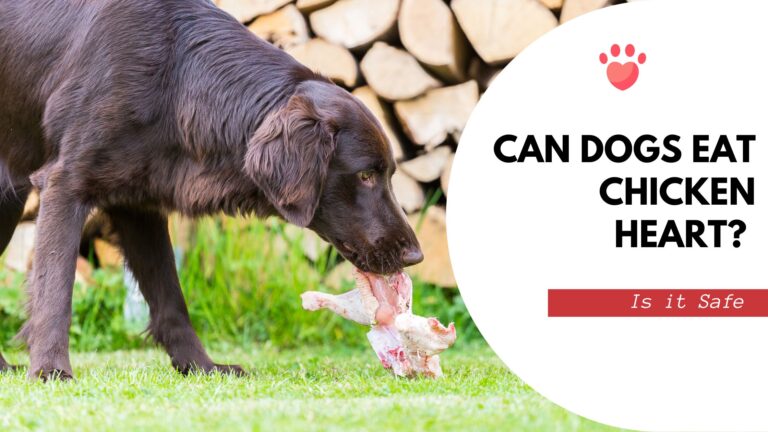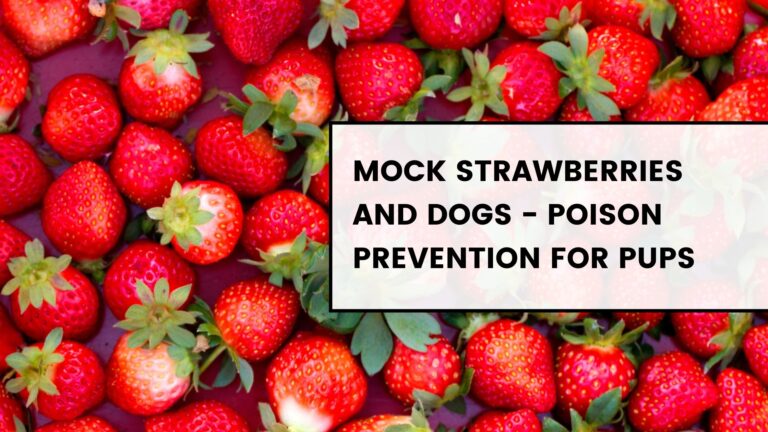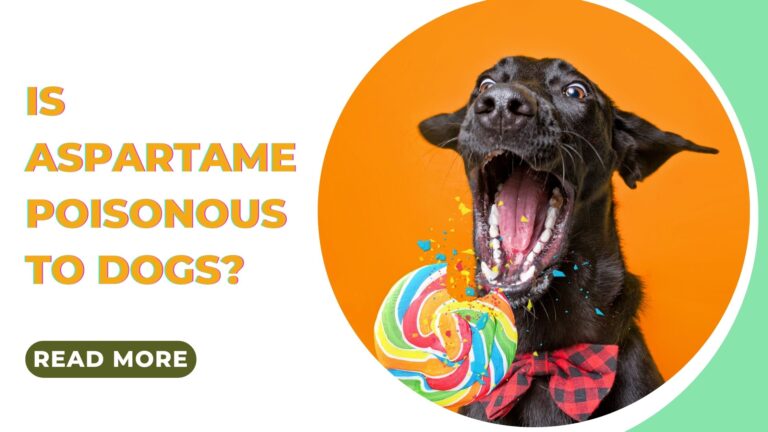Are Hackberries Poisonous to Dogs? Here’s What You Need to Know
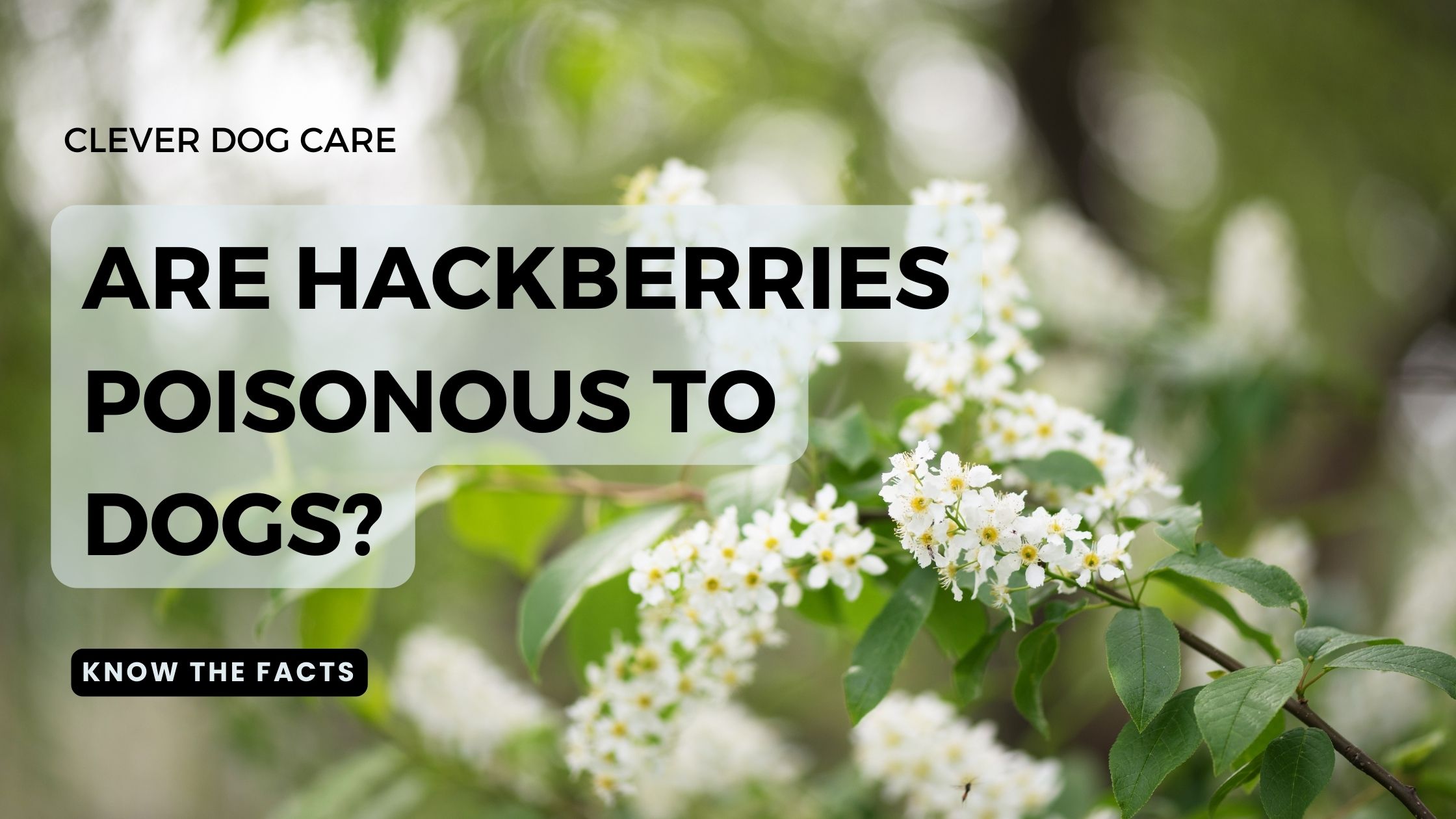
Are you wondering if hackberries are safe for your furry best friend? You came to the right place! As a passionate dog owner and experienced researcher, I’m here to help you make an informed decision in regards to canine health and safety. I have been studying this topic for years now and can assure you that whatever action you take will be based in knowledge.
In this article, we’ll dive deep into the facts about whether or not hackberries are poisonous to dogs. We’ll look at symptoms of poisoning, vet-approved treatments as well as preventive measures that can be taken when it comes to these delicious berries. By the end of this article, you should have all the information required to keep your pup safe from harm! So let’s get started – time is of the essence!
What are Hackberries?
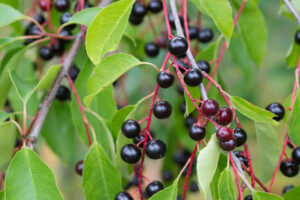
Hackberries are truly a hidden gem in the realm of berries. With their delicate sweet taste, they offer a delightful treat for those lucky enough to stumble upon them. The hackberry tree, or Celtis occidentalis if we want to get fancy with names, is the proud bearer of these delectable fruits.
Found abundantly across North America, hackberries have become a popular choice among our feathered friends and wildlife enthusiasts alike. Their small size and vibrant color make them irresistible to birds who flock to these trees like they’re throwing the best party in town. And who can resist indulging in nature’s bounty?
Picture this: you come across a patch of hackberry trees, their branches adorned with clusters of tiny purplish-black berries that glisten under the warm sunlight. You pluck one from its perch and pop it into your mouth, savoring each juicy bite as it bursts with sweetness against your palate. It’s like experiencing summer encapsulated in a single fruit.
Not only do these little wonders add beauty to our natural landscapes, but they also provide nourishment for countless creatures that call North America home. From chirping songbirds to agile squirrels, everyone wants a piece of the action when it comes to hackberries.
So next time you find yourself surrounded by nature’s buffet table, keep an eye out for those magnificent hackberry trees and let their succulent fruits transport you into a world where sweetness knows no bounds!
We have covered an extensive guide on Ashwagandha which includes are mock strawberries poisonous to dogs. Further to better understand the herb and its various uses, we have covered topics like 520 mg activated charcoal for dogs which you might be interested in. Also, check out our recent posts: can dogs eat lamb shank bones
Are Hackberries Safe for Dogs to Eat?
Dogs are notorious for their tendency to eat things they shouldn’t, whether it’s your favorite pair of shoes or that delectable slice of chocolate cake left unattended on the kitchen counter. So when it comes to hackberries, a common tree fruit found in many areas, it’s important to be mindful of how your furry friend may react.
While hackberries themselves are not toxic to dogs in small amounts, some pups may experience digestive upset after indulging in these berries. This can manifest as an upset stomach, diarrhea, or even vomiting. If you notice any of these symptoms after your dog has had a taste of hackberries, it’s best to consult with your veterinarian.
However, the real danger lies in the consumption of large quantities of hackberries. In such cases, there is a risk of poisoning due to the presence of certain compounds within the berries. These compounds can have adverse effects on your dog’s health and should be avoided at all costs.
To summarize:
- Hackberries are generally safe for dogs in moderation
- Digestive issues may occur if consumed
- Poisoning risk exists with large quantities
In conclusion, while hackberries may seem tempting for our four-legged companions, it is crucial to exercise caution and ensure they only enjoy them sparingly. As responsible pet owners, we must always prioritize our furry friends’ well-being and take steps to prevent any potential harm that could arise from their curious culinary adventures.
Also Read: https://cleverdogcare.com/is-echinacea-poisonous-to-dogs/
Symptoms of Poisoning
Hackberries are small, round berries that grow on certain types of trees. They are often found in parks and wooded areas, making them easily accessible to curious pups. While hackberries may seem harmless, they can be toxic to dogs if ingested in large quantities.
One of the most common symptoms of hackberry poisoning is vomiting. If your dog has consumed a significant amount of these berries, you may notice them regurgitating their food or fluids shortly after eating. Diarrhea is also a possible side effect, as the body tries to rid itself of the toxins.
Lethargy is another sign that something may be wrong with your furry friend. If they suddenly seem unusually tired or weak after eating hackberries, it could indicate poisoning. Loss of appetite is yet another symptom to watch out for if your dog becomes disinterested in their usual meals and treats, it’s worth considering whether hackberry ingestion could be the cause.
In more severe cases, dogs may experience seizures as a result of consuming large amounts of hackberries. This can be extremely alarming for both you and your pet and requires immediate medical attention.
If you suspect that your dog has ingested hackberries or is experiencing any symptoms mentioned above, it’s crucial to contact your veterinarian right away. They will be able to provide proper guidance and treatment specific to your pet’s situation.
Also Read: https://cleverdogcare.com/can-dogs-eat-quenepas/
Vet-Approved Treatments
If your beloved furry friend happens to gobble up some hackberries and ends up experiencing the dreadful effects of poisoning, fret not! Veterinarians have got your back with their arsenal of vet-approved treatments. They’ll assess the severity of your pooch’s symptoms and determine the best course of action.
One possible treatment option may involve inducing vomiting. Yes, that might sound a bit unpleasant, but it can be crucial in getting rid of those sneaky little toxic berries from your pup’s tummy. This helps prevent further absorption of harmful substances into their system. Don’t worry, though; veterinarians are experts at handling these situations and will ensure Fido is as comfortable as possible throughout the process.
Another treatment method involves administering activated charcoal. No, we’re not talking about grilling here! Activated charcoal acts like a sponge in the stomach, absorbing toxins with its porous structure. It basically swoops in like a superhero and saves the day by preventing these nasty chemicals from wreaking havoc on your doggo’s body.
To sum it all up nicely:
– Vets have special treatments for hackberry poisoning.
– These treatments depend on symptom severity.
– Options include inducing vomiting or giving activated charcoal.
So rest easy knowing that if ever faced with this unfortunate situation, there are solutions available to help get Mr. Whiskers back on his paws again in no time!
Also Read: https://cleverdogcare.com/can-dogs-eat-quenepas/
Preventive Measures
When it comes to keeping your furry friend safe from the potential dangers of hackberries, a little preventative action can go a long way. One crucial step is being mindful of where these trees grow and limiting your pup’s access to those areas. Hackberry trees, with their tempting berries hanging low, can pose a hazard if ingested.
To avoid any mishaps, keep an eye on your dog during walks or outdoor adventures. If you spot hackberry trees nearby, steer clear or change direction. It might be hard for Fido to resist those juicy-looking berries resting on the ground like hidden treasures, so make sure he doesn’t get his paws on them!
Another handy trick in protecting your pup is training him with commands such as “leave it.” When properly taught and reinforced, this command can come to the rescue when those alluring hackberries catch your dog’s attention. Practice using “leave it” during everyday activities and reward him with tasty treats or praise whenever he obeys.
Remember that prevention is key here! By monitoring your dog’s environment and teaching important commands like “leave it,” you can ensure that he steers clear of harmful hackberries. With these simple measures in place, both you and your four-legged companion can enjoy peace of mind during outdoor escapades!
Also Read: https://cleverdogcare.com/is-potentilla-indica-poisonous-to-dogs/
Alternatives for Dog-Friendly Treats

Feeding your furry friend the right treats is essential to ensure their health and well-being. While hackberries might seem like a tempting option, it’s important to remember that not all fruits are safe for dogs. Instead of taking chances with unfamiliar berries or allowing them to gobble up anything they find on their walks, why not introduce them to some dog-friendly alternatives?
Apples, for example, make a great treat for dogs. Not only do they provide a satisfying crunch, but they are also packed with vitamins A and C. Just be sure to remove the seeds as these can be harmful if ingested. Another fruity favorite among our canine friends is blueberries. These little powerhouses are bursting with antioxidants and fiber, making them an excellent choice for a healthy snack.
- Apples: Crunchy and packed with vitamins A and C
- Blueberries: Antioxidant-rich superfood
- Watermelon (without seeds): Refreshing hydrating treat
- Strawberries: Sweet and full of vitamin C
If you’re looking for something extra refreshing on hot summer days, watermelon chunks (seedless) can be a hit! Your pup will love the juicy sweetness while staying hydrated at the same time. And let’s not forget about strawberries! These delicious red gems not only taste amazing but also provide a good dose of vitamin C.
In summary, when it comes to treating your four-legged companion, stick to safe options like apples (seedless), blueberries, seedless watermelon chunks, or strawberries. It’s always better to play it safe rather than sorry when it comes to your dog’s health!
Hackberries, although seemingly harmless, can actually be quite dangerous for our canine companions if consumed in large quantities. It’s essential for dog owners to recognize the potential risks and take necessary precautions to protect their furry friends.
If your pooch happens to munch on a few hackberries while out on a walk, there is likely no cause for panic. However, if they gobble down a significant amount of these berries, it could lead to serious health issues. The main concern lies in the seeds of the hackberry fruit which contain toxins that can have detrimental effects on dogs.
- One of the most common symptoms of poisoning caused by hackberries is gastrointestinal distress. This may include vomiting, diarrhea, and abdominal pain. Keep an eye out for any unusual behavior or signs of discomfort after your dog has been around areas where hackberries are abundant.
- Another important symptom to watch out for is respiratory distress. If your furry friend starts wheezing or has difficulty breathing after ingesting hackberries, it could be a sign that immediate medical attention is needed.
To keep your four-legged companion safe from harm, make sure you’re aware of the potential dangers posed by certain plants like hackberries. Take preventive measures such as keeping your yard clear of these berries or using deterrents to discourage your pup from eating them during walks.
Remember, being informed about possible hazards and seeking professional advice when needed plays a vital role in ensuring our beloved pets live long and healthy lives!
Also Read: https://cleverdogcare.com/can-dogs-eat-de-la-rosa-mazapan/
FAQ
1. Are hackberries poisonous to dogs?
– No, hackberries are not toxic to dogs. They are safe for consumption and will not harm your furry friend if they eat them.
2. Can dogs eat hackberries?
– Yes, dogs can safely consume hackberries without any adverse effects. However, it’s important to ensure they are ripe and free from pesticides or other chemicals before offering them to your pet.
3. What happens if my dog eats a lot of hackberries?
– If your dog consumes a large quantity of hackberries, they may experience mild gastrointestinal discomfort such as vomiting or diarrhea. However, these symptoms should resolve on their own within a day or two.
4. Are there any benefits of feeding hackberries to dogs?
– Hackberries contain essential nutrients like vitamins A and C, fiber, and antioxidants that can be beneficial for dogs when consumed in moderation. They may support digestion and provide immune system support.
5. How should I introduce hackberries into my dog’s diet?
– It is recommended to start by offering small pieces of ripe hackberry fruit as an occasional treat or mix it with their regular food in small amounts initially. Monitor your dog’s reaction and adjust the quantity accordingly based on their tolerance.


